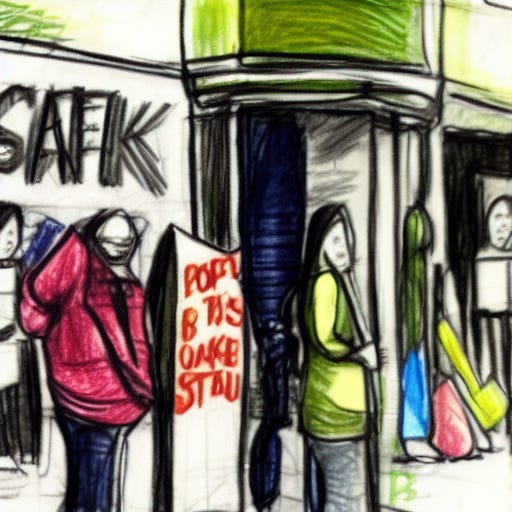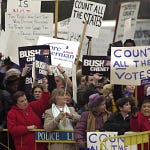On this day, June 28th, in legal history, the Supreme Court held the death penalty at that time in place in many states was unconstitutional as cruel and unusual punishment.
On June 28th, 1972, in the case of Furman v. Georgia, the United States Supreme Court declared all existing death penalty laws in the country to be invalid. The decision was reached with a 5-4 vote, with each justice in the majority providing a separate opinion. The Court ruled that the death penalty, as applied at the time, violated the Eighth Amendment to the U.S. Constitution, which prohibits cruel and unusual punishment.
The decision led to a de facto moratorium on capital punishment throughout the United States until the case of Gregg v. Georgia in 1976, which allowed for the reinstatement of the death penalty. Furman v. Georgia also resulted in the invalidation of the death penalty for rape in the consolidated cases of Jackson v. Georgia and Branch v. Texas. The Court had intended to include another case, Aikens v. California, but it was dismissed as moot due to a separate ruling in California that deemed the death penalty unconstitutional under the state's constitution.
In Furman, the justices in the majority expressed concerns about the arbitrary and discriminatory application of the death penalty, with Justices Stewart, White, and Douglas highlighting the racial bias in its imposition. Justices Brennan and Marshall went further, arguing that the death penalty itself was inherently cruel and unusual punishment and incompatible with evolving societal standards of decency. Marshall also raised concerns about the possibility of wrongful executions due to errors and perjury.
The Florida Board of Bar Examiners has announced that it will not use the new version of the bar exam, known as the NextGen Bar Exam, when it is introduced in July 2026. Instead, Florida will continue to use its current bar exam format in 2026 and make a decision later on whether to adopt the NextGen exam after that. The board stated that incoming law students should be aware of the test they will be taking when they graduate in 2026, and this decision will also help law schools in planning their curriculum. The National Conference of Bar Examiners, which is developing the NextGen Bar Exam, agrees that clarity for examinees is important and respects Florida's decision. Florida is the fourth-largest jurisdiction for the bar exam in the United States and the first to publicly announce its position on the format of the July 2026 test. Other states, including California, have also expressed skepticism about the new bar exam and are considering alternative options. The NextGen Bar Exam aims to create a more integrated exam that focuses on legal skills rather than memorization of laws.
Florida says no to new bar exam, for now | Reuters
AMC Entertainment Holdings and retail investors known for their involvement in meme stocks will face off in a two-day court hearing in Delaware over a stock conversion plan. The court will consider approving a class action settlement worth an estimated $129 million, which would resolve allegations that AMC rigged a shareholder vote against common stockholders. The conversion plan would dilute common stock ownership but help the company pay down its debt. AMC has warned of its precarious financial situation and the potential for bankruptcy without the ability to raise capital, pending the resolution of the litigation. The settlement has faced objections from over 2,800 individuals seeking to opt out and sue separately, dismissing AMC's financial predictions as fear tactics. The investors leading the lawsuit argue that the settlement compensates common stockholders without jeopardizing AMC's future, and they urge the judge to reject the objections. AMC operates over 900 theaters globally and has expressed optimism about future box office sales.
AMC, 'meme' investors to face off in court over stock conversion | Reuters
Cryptocurrency exchange FTX has filed a lawsuit against its former top lawyer, Daniel Friedberg, accusing him of aiding fraud committed by company founder Sam Bankman-Fried and suppressing reports of wrongdoing within the company. The complaint, filed in U.S. Bankruptcy Court in Delaware, alleges that Friedberg acted as a "fixer" for FTX executives, enabling the misappropriation of customer funds. FTX claims that Friedberg settled employee complaints by paying inflated amounts and even hired law firms that represented whistleblowers to work for FTX. The lawsuit accuses Friedberg of legal malpractice and breaching his fiduciary duty, seeking the return of millions of dollars' worth of cryptocurrency and other compensation. FTX filed for bankruptcy in 2022, and Bankman-Fried has been criminally charged with misusing customer funds. Friedberg has reportedly cooperated with U.S. investigations into the FTX collapse.
FTX accuses ex-lawyer of aiding Bankman-Fried's fraud, silencing whistleblowers | Reuters
Littler Mendelson, a prominent law firm specializing in labor and employment matters, has been profiting from Starbucks' efforts to combat a unionizing campaign in its coffee shops across the United States. Littler has assigned over 110 attorneys, including more than 50 partners, to represent Starbucks in union-related cases since late 2021. While the exact amount Starbucks is paying Littler remains undisclosed, the significant number of outside lawyers reflects the substantial legal work generated by the company's anti-union drive. Starbucks, with its substantial revenue of over $32 billion in fiscal year 2022, has allocated significant resources to fight the union and defend against allegations of labor law violations. The majority of legal proceedings involve the National Labor Relations Board (NLRB), where Starbucks Workers United has won the majority of elections but has yet to reach a collective bargaining agreement with the company. Starbucks has been hit with numerous unfair labor practice charges, and administrative law judges have ruled against the company in most cases. Starbucks has accused the NLRB of bias and collusion with the union. Littler, with its extensive network of offices nationwide, has become Starbucks' go-to law firm for NLRB-related work. The firm's attorneys from various offices have been involved in union-related cases across the country. Littler has built a reputation for advising companies on labor matters and is known for its aggressive approach to defending employers. The firm's expertise aligns with Starbucks' anti-union campaign, which has involved extensive litigation and resistance to union organizing.
Littler Cashes in on Starbucks’ Sprawling Anti-Union Campaign
OpenAI LP, a leading generative artificial intelligence company, is facing a consumer class action lawsuit alleging that it engages in web scraping practices that misappropriate personal data on an extensive scale. The lawsuit claims that OpenAI's popular AI programs, ChatGPT and DALL-E, are trained using "stolen private information" obtained from hundreds of millions of internet users, including children, without proper authorization. The complaint asserts that OpenAI unlawfully accesses personal information from user interactions with its products and through integrations with platforms like Snapchat, Spotify, Stripe, Slack, and Microsoft Teams, enabling the collection of image, location, music preference, financial, and private conversation data. OpenAI is accused of conducting a secretive and massive web scraping operation, violating terms of service agreements, as well as state and federal privacy and property laws. The Computer Fraud and Abuse Act, a federal anti-hacking law, is cited in the lawsuit. The complaint includes 16 plaintiffs who used various internet services, including ChatGPT, and believe their personal information was stolen by OpenAI. Microsoft Corp., which is investing in OpenAI, is also named as a defendant in the case. OpenAI has yet to comment on the lawsuit.
OpenAI Hit With Class Action Over ‘Unprecedented’ Web Scraping













